Ok, you’re considering buying an electric vehicle or maybe already have one, but you’re not sure how to choose the best EV car charging station for your home. Unless you live in an area with ample public charging options, using an electric vehicle at home can require installing a source for charging. That’s where installed car charging stations come into play — provided your home is equipped to handle them.
Understanding the different types of residential EV chargers, their pros and cons, and other factors to consider will help ensure you find the best one for your situation. Whether you’re a contractor, builder, or homeowner planning to install an EV charger in your own home, this article will help you choose the right one.
What Is An EV Car Charging Station?
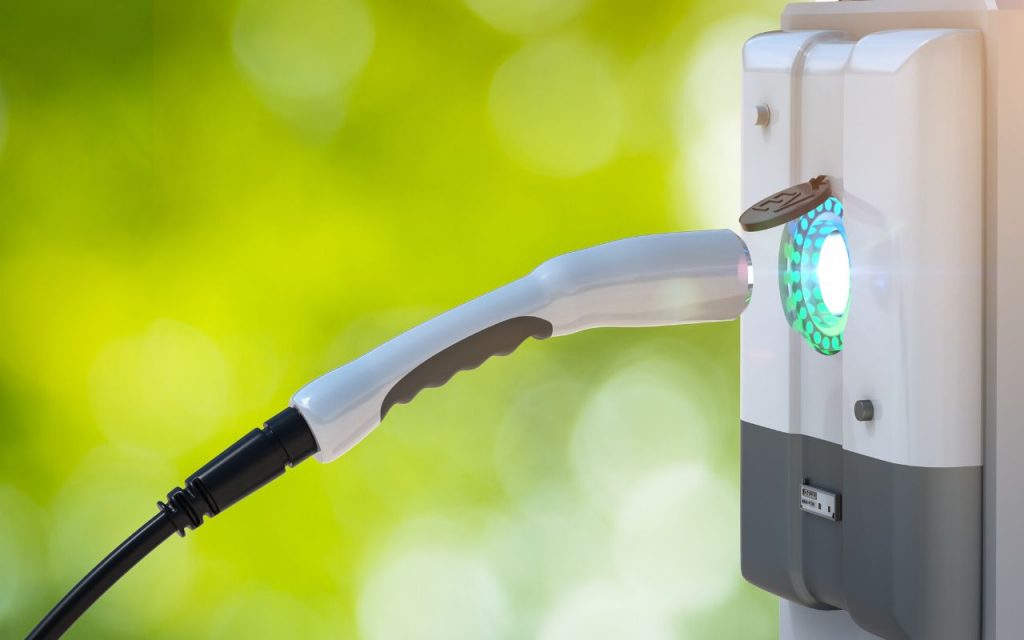
An EV charging station, also known as an EV charger, is a device installed at a residence or commercial space that charges an electric vehicle. The charging station can be connected to the power grid and can include a variety of different connectors to accommodate different types of EVs. There are three main types of residential EV charging stations:
- Level 1 charging: Plugs into your regular outlet and is the slowest type of charge. Usually takes all night for a full charge. Charges at a speed of 6 to 8 km per hour (depending on the car model). Usually takes about 12 to 20 hours for a full charge.
- Level 2 charging stations: These are most common, and can add 20-30 kms of range per hour. Takes about 6 to 14 hours to fully charge the battery.
- Level 3 charging stations: These are designed for installation in commercial spaces, and multi-EV owners or large estate owners, and can add up to 200 to 250 kms of range per hour. Takes 1 to 4 hours to fully charge an EV, and can reach 80% charge usually within about 30 minutes.
Types Of EV Charging Stations
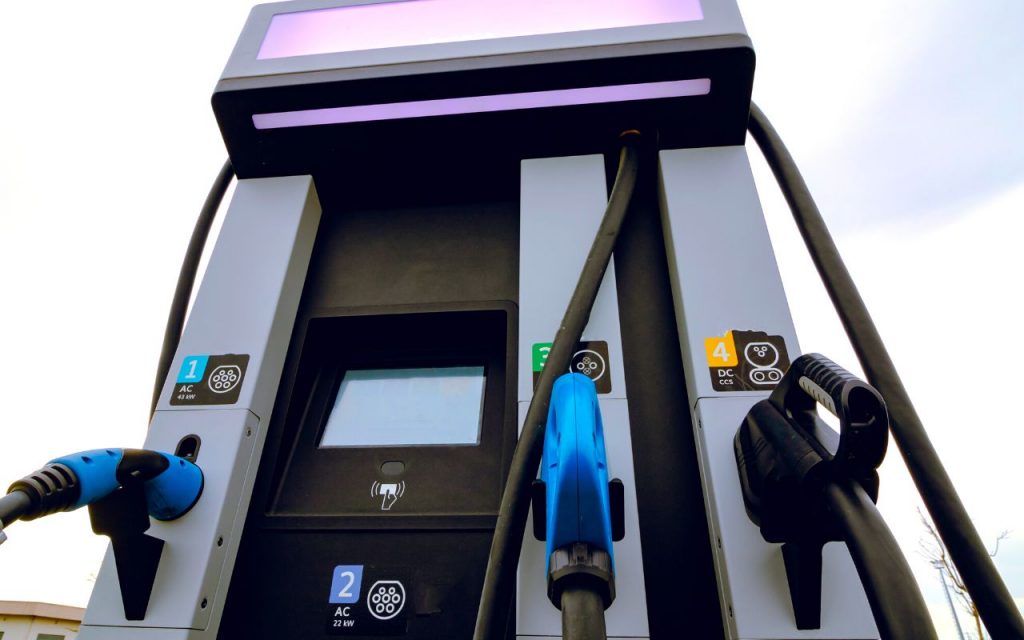
Level 1 Charging Stations: 120-Volt (standard home outlet)
Charging Speed: 6-8 km per hour of charging
Locations: Home, Workplace & Public
Level 1 charging is the out-of-the-box charging offered by many Hybrid and Electric vehicles. Since Plug-in Hybrid Electric Vehicles (PHEVs) have smaller batteries, Level 1 charging is adequate for them. Level 1 charging is insufficient for rapid charging for most EVs because they have much larger batteries and are often used for longer distances.
Every electric vehicle or plug-in hybrid can be charged on Level 1 by plugging charging equipment into a regular wall outlet. Level 1 is the slowest method for charging an EV. Level 1 adds between 6 and 8 kms of range per hour.
The best part of a level 1 charger is that it doesn’t usually require any additional wiring when installed in a new home, or even in most existing homes.
Level 2 Charging Stations: 240-Volt
Charging Speed: 20-30 kms per hour of charging
Locations: Home, Workplace & Public
Level 2 charging stations are the most common type of residential EV charger as they are about 10 times faster than a Level 1 charger. They are connected to your home’s electrical system at a higher voltage (240 Volt) and draw more power than level 1.
Level 2 chargers generally take between 7 and 12 hours to get an EV from empty to full, at a rate of around 20-30 kms of range per hour. Level 2 chargers can provide owners with a full ‘tank’ of electricity for less money. Level 2 chargers are not installed as part of the original construction of a home, but can be added at a later date.
Upgrades to your electrical panel are quite common when adding a level 2 charging station due to the amount of voltage required for it to be installed.
Level 3 Charging Stations: 400-Volt to 900-Volt (DC Fast Charge & Supercharging)
Charging Speed: 200 kms per hour of charging and as much as 80% charge capacity within 40-60 minutes.
Locations: Public
Level 3 charging stations are designed for commercial use, and can charge EVs at an impressive rate. They can provide an 80% charge in just 30-40 minutes — a rate far quicker than the 7-12 hours it takes to get the same percentage using a level 2 charger.
Level 3 chargers are generally connected to a building or utility’s power grid, and draw significantly more power than level 2. It’s important that the grid can support the increased draw from the charger, or it could cause power outages. As a result, level 3 chargers are always installed by contractors.
If you’re installing a charger in a commercial space, a level 3 may make sense. It’s also worth considering if you live in a rural area where level 2 chargers may take a long time as they are at lower capacity; therefore a level 3 charger may be the best solution.
They can require a commercial-grade circuit breaker, and may require a commercial-grade transformer. They’re also designed to be used by multiple vehicles at the same time.
EV Charging Speed on Level 1, 2, 3 Chargers
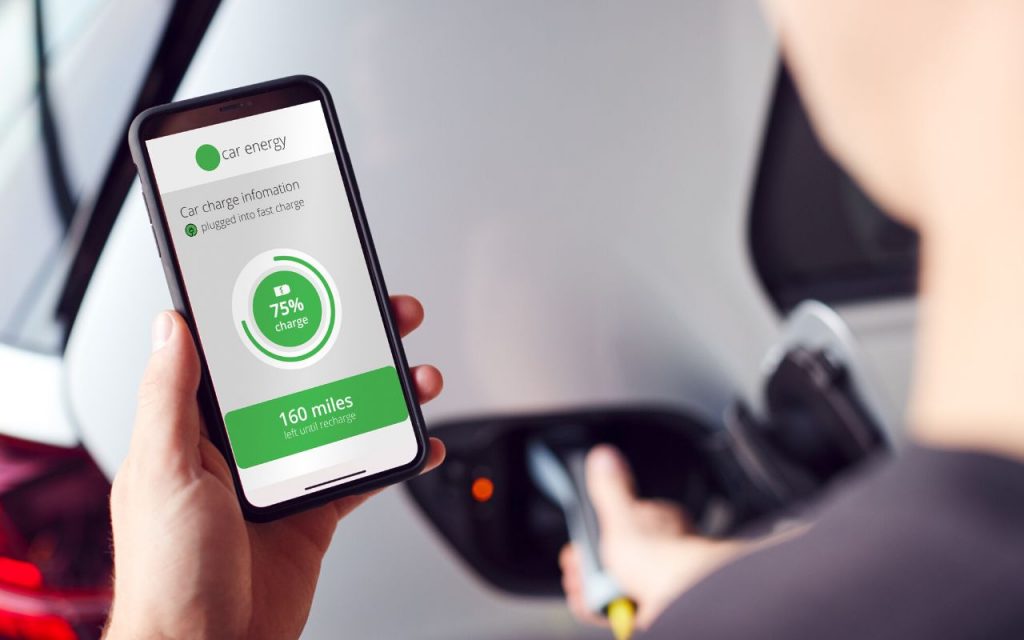
| Charging Level | Power Delivery | Range Added Per Hour | Time to Charge 60 kWh EV* |
| Level 1 | 1-1.4 kW | 6-8 kms | 30-40 hours |
| Level 2 | 3.9-19.2 kW | 20-30 kms | 2.5-4.5 hours |
| Level 3 | 24-300 kW | 200 kms | 30-40 minutes |
*Time to Charge EV with a 60-kWh battery is the time to raise the battery’s charge level from 10% to 80%
Finding The Right EV Charger For Your Home
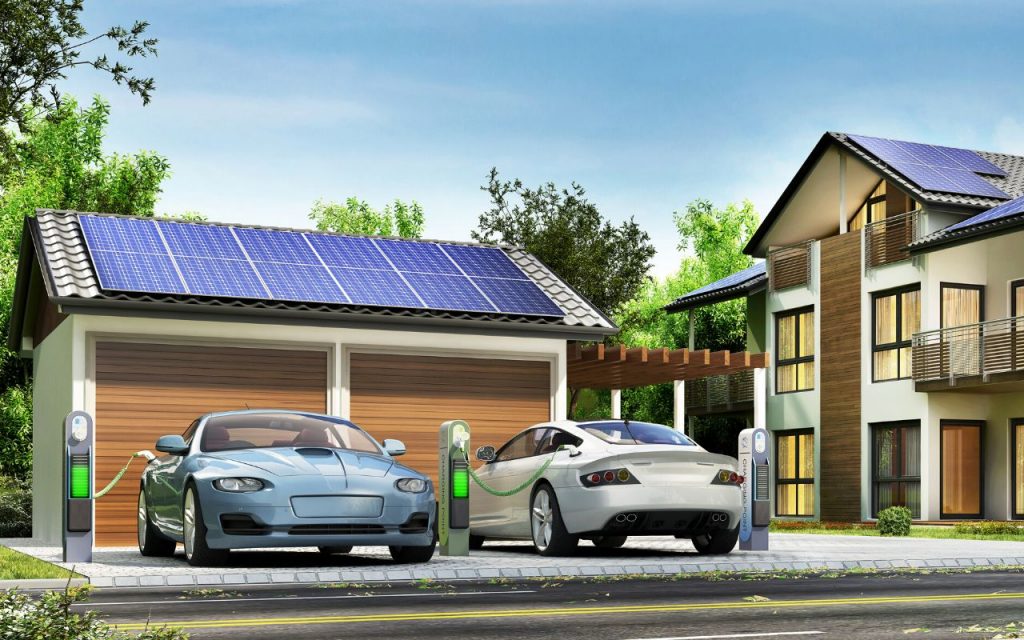
As you evaluate the different types of residential EV chargers, it’s important to keep your home’s electrical system in mind. If you don’t have an installed circuit breaker in a room where you want to install a charger, for example, you may need to upgrade your system. If you already have a high demand on your system it will also affect your charging speeds.
Be sure to consult with an electrician to help you choose the right charger for your home. While many chargers are plug ‘n play, it’s important to remember that each uses electricity, and you’ll want to make sure the one you choose is safe.
4 Important Questions To Ask Before Installing An EV Charging Station
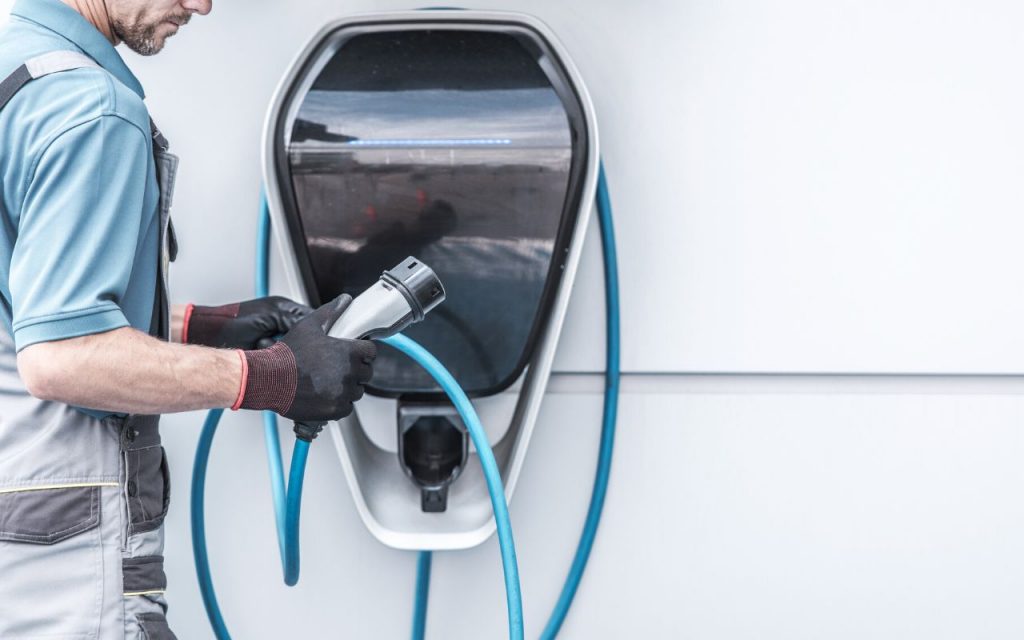
There are a few questions you should ask yourself before installing an EV charger. They will help you determine what kind of charger you need and will help you identify any electrical issues or special considerations that may come up during the installation process.
1. What kind of car do you own?
EVs come in all shapes and sizes and have different charging requirements. The type of car you own will determine what kind of charger you need.
2. What level of charging speed are you looking for?
Level 1 chargers, for example, give you a slower charging rate, but don’t require any additional wiring. Level 2 and Level 3 chargers, on the other hand, can provide a quick charge, but usually require a system upgrade.
3. Do you want to install a level 2 or level 3 charger?
If you have the space for level 2 or 3 chargers, it can provide faster charging, but it will also require additional wiring.
4. What is the availability of power, and how much power does the charger need?
If you have a low-power circuit nearby, you may be able to install a level 1 charger. If you have a higher-power circuit nearby, you may be able to install a level 2 charger. Level 3 chargers require a higher capacity system and are often not possible in most homes.
2 Key Things To Know Before Installing A Residential Charging Station
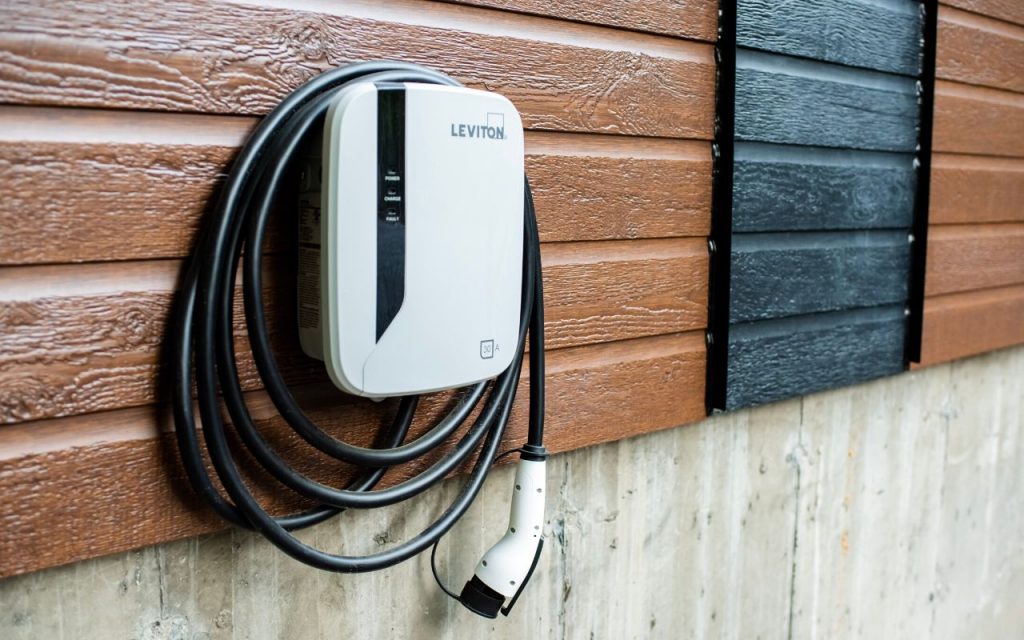
Before you rush out and buy the first charger you see, there are a few key things to keep in mind.
- Level 2 and level 3 chargers often require system upgrades. If you’re installing a new charger, you’ll need to be sure you have the right wiring to support it. If you’re adding a new charger to an existing circuit, you’ll also need to be sure that the circuit can handle it. If not, it could cause an outage or potential hazard.
- Level 3 chargers may require commercial-grade equipment and installation. Level 3 chargers are designed to support a high number of EVs plugged in at once.
The Location Of Your Charger Is Vital
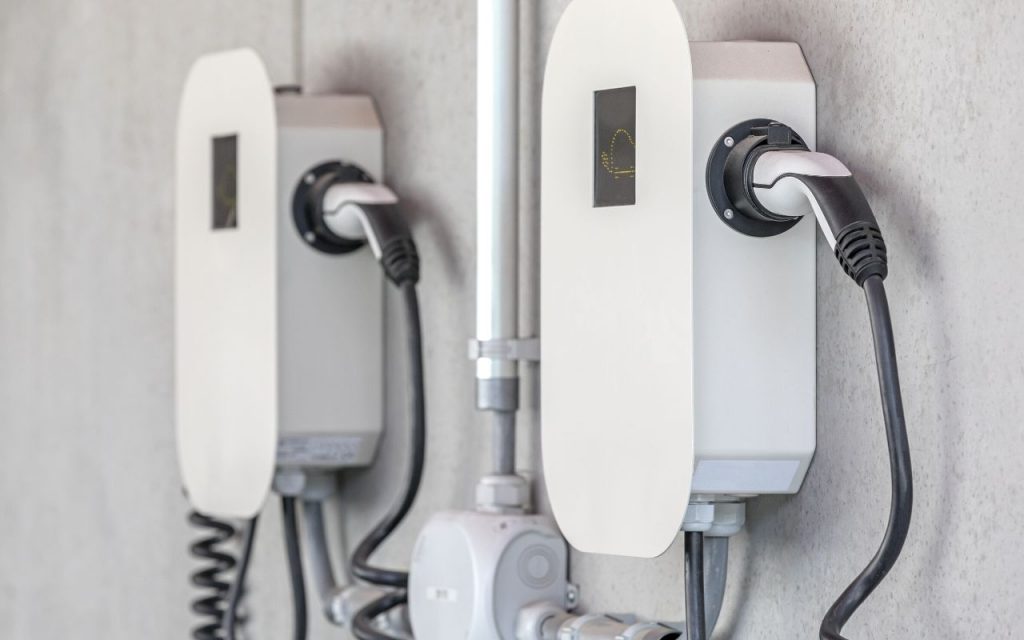
One key aspect of bringing home an EV is that many people forget to consider where they will be charging their car and whether enough electricity can currently be brought to that spot.
It’s best to consult an electrician to review your current electrical outlet locations, the proximity to your panel, and your panel’s capability to handle the increased power needs of your EV.
Your electrical contractor can help you every step of the way.
Conclusion
An EV charging station can be a great addition to a home with an electric car. However, it’s important to understand the different types of chargers and to make sure your home is equipped to handle one.
Want to explore your EV Charging Station Options? Contact Electrical Elite today at 647-993-5483 or via our online quote request.
